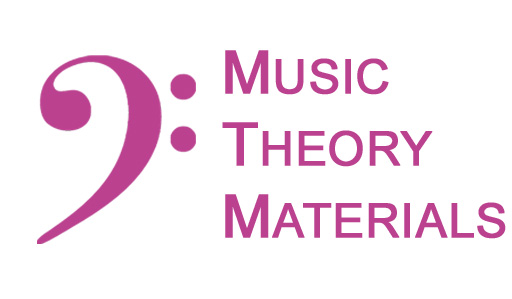Below is information on PowerPoint presentations on various compositional techniques.
You may download them from the Google Drive linked to in the Download button.
Types of Analysis
PowerPoint Presentation
Contents
In this presentation, the following types of analytical processes are introduced.
- Jazz/pop symbols
- Linear analysis
- LaRue Style analysis
- Set theory analysis
- 12-tone analysis
Non-Functional Harmony
PowerPoint Presentation
Contents
Sometimes in music there are sections where we can label the root, quality and position of the chord but we cannot identify the function of the chord in a traditional sense. Such chords are called Non-Functional Harmony. In this presentation, we will look at several examples of music using non-functional harmony.
Impressionism
PowerPoint Presentation
Contents
In this presentation, we will talk about some of the techniques used by impressionistic composers, including:
- Extended tertian harmonies
- Types of chords other than tertian harmonies
- Palindromes
- Pedal tones
- Parallelism
- Modes, pentatonic, whole tone scales
- Hemiolas
- Fluidity of rhythm – rhythms moving across/against the bar line
Neo-Riemannian Theory (NRT)
PowerPoint Presentation
Contents
In this presentation, we will talk about some of the concepts of Neo-Riemannian Theory including:
- Parallel, leading tone and relative relationships between chords.
- The Tonnetz
- Compound relationships
- Cyclic patterns
- Further Reading
Set Theory
PowerPoint Presentation
Contents
In this presentation, we will talk about some of the terms and concepts of set theory including
- Pitch
- Enharmonic equivalence
- Integer notation
- Modulo 12 (mod 12)
- Octave equivalence
- Pitch class
- Pitch class set
- Normal order
- Prime form
- Interval vector
This presentation uses the theme Skye Van Duuren’s (https://svdmusic.com/) Theme and Variations for Piano (2013) as an example.
12-Tone Technique
PowerPoint Presentation
Contents
This presentation covers some of the terms and concepts of 12-tone music analysis including:
- The differences between non-serial and serial music
- The tone row
- Prime form, retrograde, inversion, and retrograde inversion
- The 12-tone matrix
- How to find all the rows in the piece
- How to look for patterns in the rows in the piece to help determine the form of the piece.
This presentation uses R. Alden Clark’s (b. 1991) 4 Cycles (2015) as our example piece for analysis.(https://raldenclark.bandcamp.com/ )
All materials on this site are presented as Open Educational Resources (OER); all information is free for you to use and share under a Creative Commons Attribution-NonCommercial-ShareAlike 4.0 International License.
